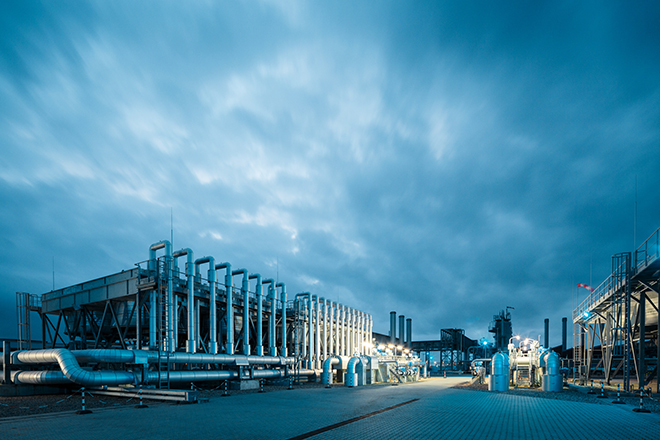Featured Topics
Featured Products
Events
S&P Global Offerings
Featured Topics
Featured Products
Events
S&P Global Offerings
Featured Topics
Featured Products
Events
S&P Global Offerings
Featured Topics
Featured Products
Events
Financial and Market intelligence
Fundamental & Alternative Datasets
Government & Defense
Professional Services
Banking & Capital Markets
Economy & Finance
Energy Transition & Sustainability
Technology & Innovation
Podcasts & Newsletters
Financial and Market intelligence
Fundamental & Alternative Datasets
Government & Defense
Professional Services
Banking & Capital Markets
Economy & Finance
Energy Transition & Sustainability
Technology & Innovation
Podcasts & Newsletters
14 Jun, 2022

|
The Etzel gas storage facility in Germany. Controversial even before the war in Ukraine, gas is increasingly becoming unpalatable as a transition fuel in Europe. |
Two groups of European Parliament members voted June 14 against the inclusion of natural gas and nuclear in the EU's green finance taxonomy, its guidebook for sustainable investments.
In a joint meeting of the Economic and Monetary Affairs Committee and the Environment, Public Health and Food Safety Committee, 76 members of the European Parliament, or MEPs, voted to adopt an objection to the European Commission's plan to include the technologies in the taxonomy.
Sixty-two MEPs voted against the objection, with four abstentions. The resolution now goes to a vote of all 705 MEPs, scheduled for early July.
In February, the commission controversially decided to include the technologies in the taxonomy, with certain conditions. It earmarked the technologies as transitional on the way to a fully decarbonized system.
However, scientific advisers to the commission had urged against the inclusion of nuclear and gas, saying energy security and affordability concerns were being intertwined with considerations that ought to be strictly on environmental credentials.
While recognizing the role of nuclear and gas in a stable energy system, MEPs said technical screening standards proposed in the legislation were inconsistent with criteria for environmentally sustainable activities as defined in the taxonomy.
The European Parliament and European Council have until July 11 to decide whether to veto the proposal. If an absolute majority of MEPs objects, the proposal will have to be withdrawn or amended.
'Flagrant self-sabotage'
Campaigners were upbeat in the aftermath of the committee votes.
"We are facing a climate crisis, a cost-of-living crisis and the war in Ukraine means the EU urgently needs to become independent of Russian uranium and gas," said Bas Eickhout, a Green MEP who sits on both committees involved in the vote. "Artificial incentives to invest in expensive nuclear and fossil energy at the expense of renewables and other sustainable sectors is the last thing we need."
Marta Toporek, a lawyer at environmental group ClientEarth, said the taxonomy's inclusion of nuclear and gas "is not only flagrant self-sabotage in climate terms — it is unlawful."
"It clashes with the EU's key climate legislation and the main piece of EU legislation on the taxonomy itself," Toporek said in a June 14 statement. "The commission's decision to include gas in the taxonomy was clearly politically motivated."
Investors had already warmed to nuclear in the weeks after the commission's decision, but the subsequent invasion of Ukraine and energy policy response by the EU also cast doubt on the importance of the taxonomy itself. Some market watchers said the rulebook was becoming obsolete given the overriding concerns over availability and affordability of energy.
Nuclear in particular has benefited from this shift in recent months. Belgium decided to extend the lifetime of two of its reactors, France put nuclear center stage in its drive for energy independence and the U.K. unveiled plans to source 25% of its power from nuclear by 2050.
Gas, meanwhile, has become less palatable as a transition fuel, both because of Europe's reliance on Russia for it and because of its spiraling cost.
S&P Global Commodity Insights produces content for distribution on S&P Capital IQ Pro.
